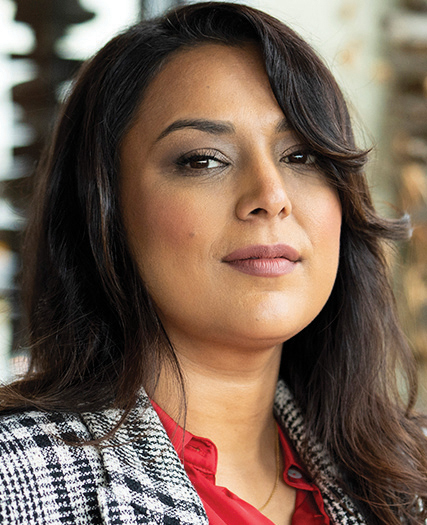Healing in health care
 |
| Dr Ramneek Dosanjh |
On our journey toward truth and reconciliation and antiracist action in health care, we must recognize the deep need for creating space to heal. Health care is designed to protect one of the most sacred assets we have—our health—yet most Indigenous people and those from many other cultures likely find the system, institutions, training, and ideologies far from healthy. Systemic racism exists in our health care system, and while this truth may be uncomfortable, we must not shy away from it.
The hierarchical structures of our struggling health care system are only perpetuating racism. The gross interracial inequities that exist around access to care, what we learned through the In Plain Sight report, and what has become abundantly clear during the pandemic should be used to heighten our awareness and anchor our responsibility to advance concrete and meaningful action. It is our collective responsibility as physicians, as well as the responsibility of government and other groups that make up our health care system, to promote cultural safety and humility and antiracist action in all aspects of health care.
Indigenous cultural safety is an outcome based on respectful engagement that recognizes and strives to address power imbalances inherent in the health care system. It results in an environment free of racism and discrimination, where people feel safe when receiving services. Cultural humility is a process of our own self-reflection to understand personal and systemic conditioned biases, and to develop and maintain respectful processes and relationships based on mutual trust. It involves humbly acknowledging oneself as a lifelong learner in understanding others’ experiences. Together, cultural safety and humility must be understood, embraced, and practised at all levels of our health care system, including in governance, in institutions, and within individual professional practices.
Antiracist action is a deliberate conscious commitment to take steps to end racial inequities in our daily lives, whether it be individually, interpersonally, or institutionally. We must reject discriminatory treatment, unfair policies, and biased practices that result in inequitable outcomes for racialized populations.
In order to evolve and heal in medicine, we need to understand the barriers and inequities that exist. When we increase our awareness of systemic racism, it becomes easier to confront it and develop consistent action to dismantle it. Awareness is appreciating the truth and not denouncing it in any form. Acceptance of others’ personal or collective racialized experiences should be vigilantly respected and used as guidance for our evolution in health care. We know the health and well-being of racialized populations depend on our responsiveness and advocacy for them. The reasons to change and challenge the status quo in health care far outweigh the reasons to accept it as it stands. When we take ownership and accountability by consciously challenging our biases, the health of our patients, communities, and overall population will improve. Our healing and health go hand in hand. There is no health without healing our deep wounds, both individually and collectively. As we walk toward cultural safety and humility and antiracist action, we promote healing.
There is increasing awareness among physicians of systemic racism and the need for culturally safe and antiracist care. However, we, as physicians alone, cannot transform the system to be culturally safe, humble, and antiracist. We need to work together with government, other health care providers, administrators, and everyone else involved in our health care system; we need to listen to and follow the lead of Indigenous, Black, and other racialized patients and providers; and we need to be innovative, self-reflective, and willing to change.
The evolution of humanity and our collective consciousness depends on each of us demonstrating continued intentional dedication to empower, lead, and create lasting change. As physicians, we have the opportunity to create a world without hate, and to challenge our entire health care system and how we choose to participate in it, by prescribing healing, one antiracist dose at a time.
—Ramneek Dosanjh, MD
Doctors of BC President
hidden
 |
| This work is licensed under a Creative Commons Attribution-NonCommercial-NoDerivatives 4.0 International License. |

